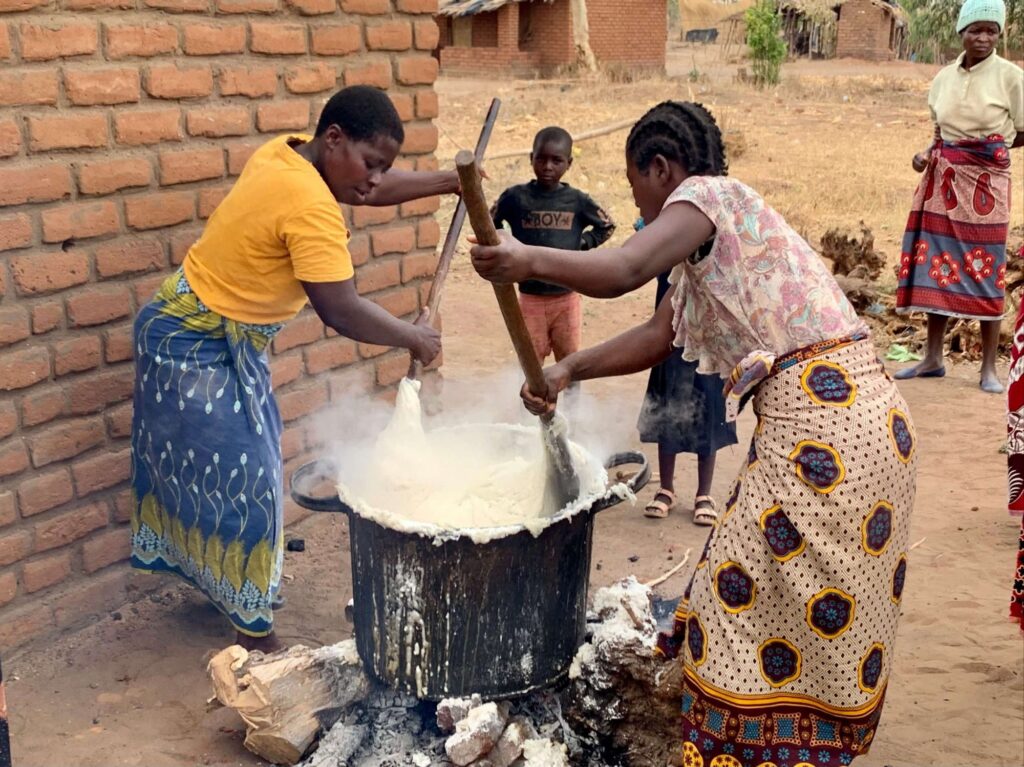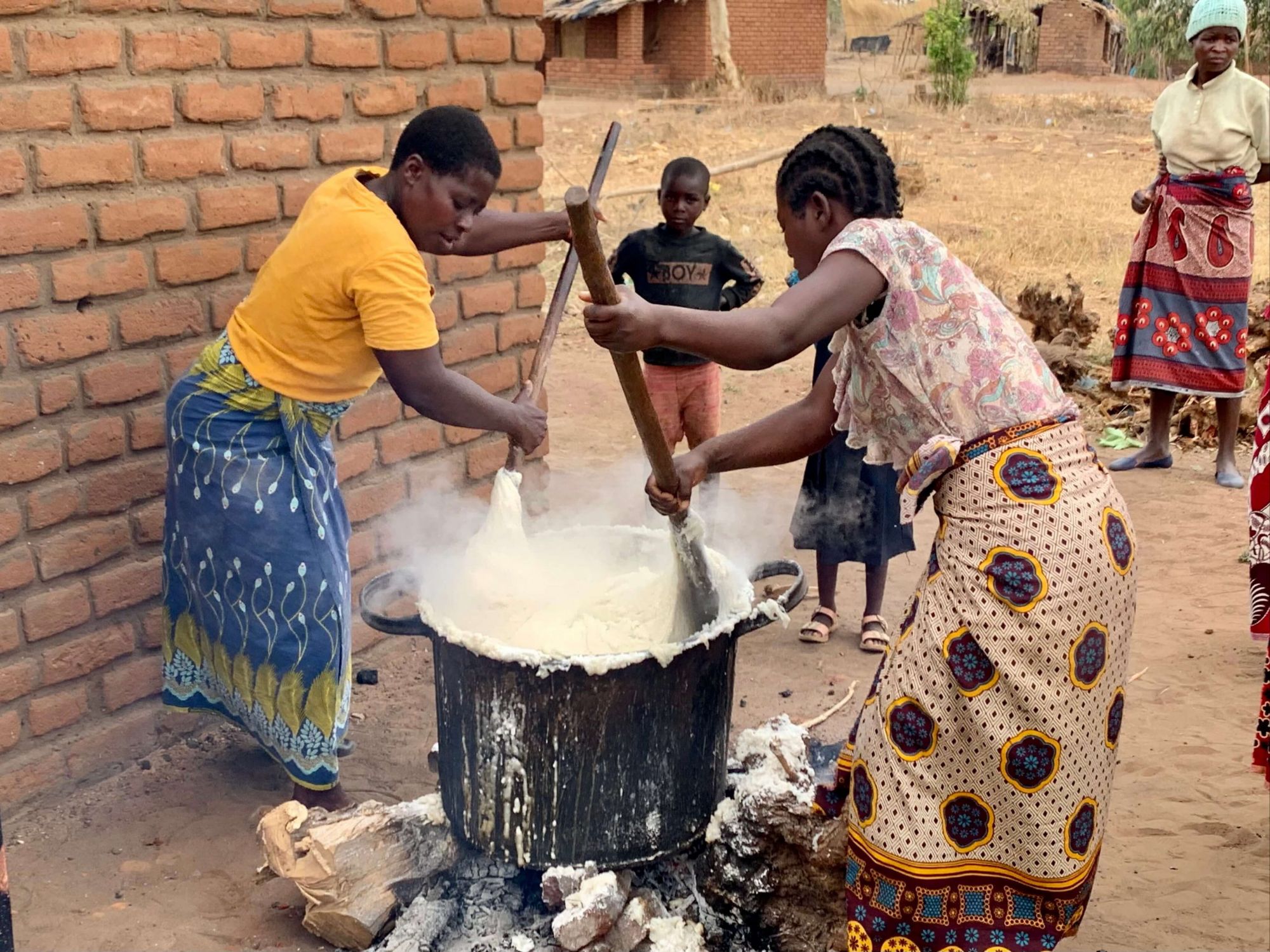By Twink Jones Gadama
Malawi, a landlocked country in southeastern Africa, is renowned for its agricultural landscape, with maize serving as the cornerstone of its food security and cultural identity. The reliance on rain-fed agriculture, particularly for maize cultivation, poses significant challenges, especially in the face of climate change and erratic weather patterns. As farmers across the nation grapple with the harsh realities of prolonged dry spells, the urgent need for innovative solutions to mitigate the impact of drought on maize production has never been more critical. This article explores various strategies that Malawi can adopt to ensure that the absence of rain does not jeopardize maize crops and, consequently, the food security of its people.
The first step towards enhancing resilience in maize production is the adoption of irrigation systems. Malawi is endowed with numerous water bodies, including lakes and rivers, which can be harnessed for irrigation purposes. By investing in modern irrigation infrastructure, such as drip and sprinkler systems, farmers can ensure a consistent water supply for their crops, regardless of rainfall patterns. The government, in collaboration with non-governmental organizations and international partners, should prioritize the development of irrigation schemes, particularly in regions most vulnerable to drought. Training farmers on efficient water management practices will further enhance the effectiveness of these systems, allowing them to maximize crop yields even in dry conditions.

In addition to irrigation, the promotion of drought-resistant maize varieties is crucial for safeguarding food security. Research institutions and agricultural extension services should work together to develop and disseminate improved maize varieties that can withstand prolonged dry spells. These varieties, often characterized by deeper root systems and enhanced water-use efficiency, can significantly reduce the vulnerability of maize crops to drought. Farmers should be encouraged to adopt these resilient varieties through awareness campaigns and incentives, ensuring that they have access to the seeds and knowledge necessary for successful cultivation.
Furthermore, the implementation of conservation agriculture practices can play a pivotal role in enhancing soil health and moisture retention. Techniques such as minimum tillage, crop rotation, and cover cropping can improve soil structure, increase organic matter, and enhance the soil’s ability to retain moisture. By promoting these practices among farmers, Malawi can create a more sustainable agricultural system that is better equipped to withstand the challenges posed by climate variability. Training programs and workshops should be organized to educate farmers on the benefits of conservation agriculture, providing them with the tools and knowledge needed to adopt these practices effectively.
Another critical aspect of ensuring food security in the face of drought is the establishment of robust early warning systems and climate information services. Farmers need access to timely and accurate weather forecasts to make informed decisions about planting and managing their crops. The government, in collaboration with meteorological agencies, should invest in the development of user-friendly platforms that provide farmers with real-time weather updates and climate forecasts. By equipping farmers with this information, they can better prepare for adverse weather conditions, adjust their planting schedules, and implement appropriate risk management strategies.
In addition to these proactive measures, it is essential to strengthen the social safety nets for vulnerable communities. Droughts can have devastating effects on food security, particularly for smallholder farmers who lack the resources to cope with crop failures. The government should consider implementing food assistance programs, cash transfers, and insurance schemes that provide support to affected households during times of crisis. By creating a safety net, Malawi can help mitigate the impact of drought on food security and ensure that vulnerable populations have access to the resources they need to survive.
Moreover, fostering collaboration between farmers, agricultural researchers, and policymakers is vital for developing effective strategies to combat drought. Establishing platforms for knowledge exchange and dialogue can facilitate the sharing of best practices, innovative solutions, and lessons learned from past experiences. By bringing together stakeholders from various sectors, Malawi can create a more cohesive and coordinated approach to addressing the challenges posed by climate change and ensuring food security.
Investing in education and capacity building for farmers is another essential component of enhancing resilience in maize production. Many smallholder farmers lack access to modern agricultural techniques and technologies that can improve their productivity and resilience to drought. By providing training programs that focus on sustainable farming practices, water management, and crop diversification, Malawi can empower farmers to make informed decisions and adopt practices that enhance their resilience to climate variability. Additionally, promoting access to credit and financial services can enable farmers to invest in necessary inputs, such as irrigation systems and improved seeds, further strengthening their capacity to cope with drought.
The role of technology in enhancing agricultural productivity cannot be overlooked. The integration of digital tools and mobile applications can provide farmers with valuable information on weather patterns, market prices, and best agricultural practices. By leveraging technology, farmers can make data-driven decisions that optimize their production and reduce their vulnerability to climate-related shocks. The government, in partnership with tech companies and agricultural organizations, should work towards expanding access to digital resources and training farmers on how to utilize these tools effectively.
Lastly, addressing the underlying issues of land degradation and deforestation is crucial for ensuring long-term food security in Malawi. Unsustainable land use practices can exacerbate the impacts of drought and reduce the overall productivity of agricultural land. The government should prioritize reforestation initiatives and promote sustainable land management practices that enhance soil health and biodiversity. By restoring degraded lands and protecting natural ecosystems, Malawi can create a more resilient agricultural landscape that is better equipped to withstand the challenges posed by climate change.
In conclusion, the challenges posed by drought and climate variability require a multifaceted approach to ensure food security in Malawi. By investing in irrigation infrastructure, promoting drought-resistant maize varieties, implementing conservation agriculture practices, and strengthening early warning systems, the country can enhance its resilience to climate shocks. Additionally, fostering collaboration among stakeholders, investing in farmer education, leveraging technology, and addressing land degradation are essential components of a comprehensive strategy to combat the impacts of drought on maize production. As Malawi navigates the complexities of climate change, a proactive and coordinated approach will be vital in securing the future of its agricultural sector and ensuring that all Malawians have access to sufficient and nutritious food.



